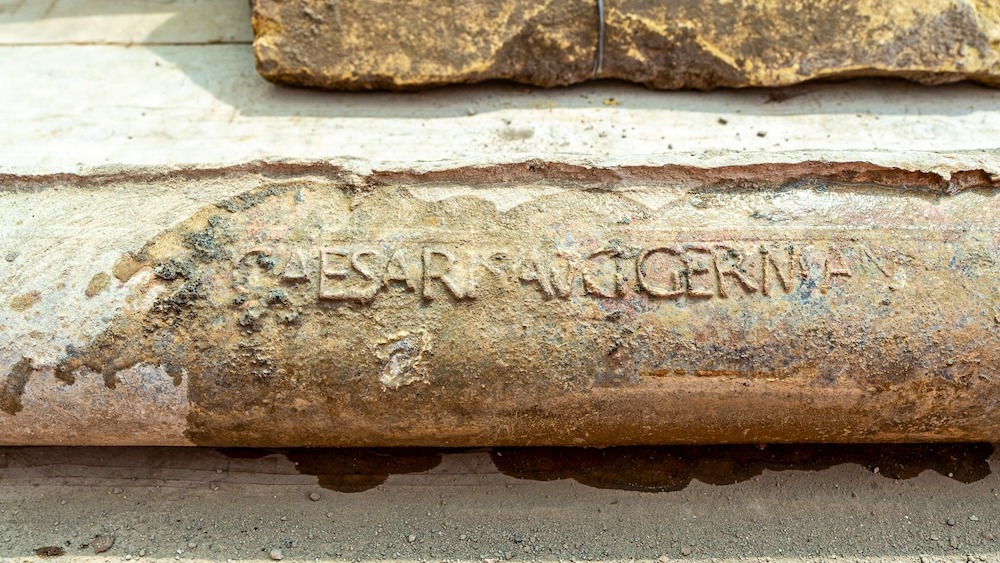Construction workers in Italy have discovered a 2,000-year-old garden that once belonged to a Roman emperor.
The garden’s travertine walls overlook the banks of the Tiber, a river that runs through Rome and lies east of Vatican City. The ruins were unearthed when workers built a new viaduct over Piazza Pia, according to a translated rack from the Italian Ministry of Culture.
When archaeologists removed debris, they found a lead water pipe with the following inscription: “C(ai) Cæsaris Aug(usti) Germanici.” Researchers determined that the engraving referred to Gaius Caesar Augustus Germanicus, better known as Caligula (also called “little boot”, a nickname given to him as a child by his father’s soldiers).
Based on the inscription, researchers believe the garden likely belonged to the infamous Roman emperor. Caligula was not only known as a tyrannical and ruthless leader, he was also a sadist who humiliated his Senate. Caligula took the throne in 37 AD, and in 41 AD, the Praetorian Guard—the officials who were supposed to protect him—assassinated the emperor.
Related: Villa near Vesuvius may be the place where Augustus, the first emperor of Rome, died
This conclusion is supported by a passage in the ancient text “On the Embassy to Gaius,” written by the Egyptian philosopher Philo of Alexandria. It describes how Caligula met a representative of Jews living in Alexandria, Egypt, in a large garden along the Tiber, the statement said.
At that time, the Jewish Alexandrians and the Greek Alexandrian population were in a “crisis that manifested itself in violence, brawls, and periods of religious intolerance.” Caligula, however, rejected the Jews’ requests for religious autonomy and instead sided with the Greeks.
RELATED STORIES
—AI ‘brings’ 54 Roman emperors to life in stunningly lifelike images
—2,300-year-old shell mosaic discovered in luxurious home in Rome
—Archaeologists discovered a hidden chamber in the underground palace of Roman Emperor Nero
Alessio De CristofaroAn archaeologist with the Special Superintendent for Archaeology, Fine Arts and Landscapes, a government agency in Rome, said the find is significant because Piazza Pia is in the same area as the “Horti Agrippinae,” the garden of Agrippina the Elder, the mother of Caligula.
The pipe also resembles another, found in the early 1900s, which is engraved with the name Iulia (Julia) Augusta, the second wife of Augustus and the grandmother of Germanicus. Researchers speculate that the property was inherited by Germanicus and later passed on to his wife, Agrippina the Elder, before passing to Caligula.
In addition to the pipe, archaeologists also found plates of pottery from the Roman period and terracotta figures with mythological scenes that probably stood on roofs.

